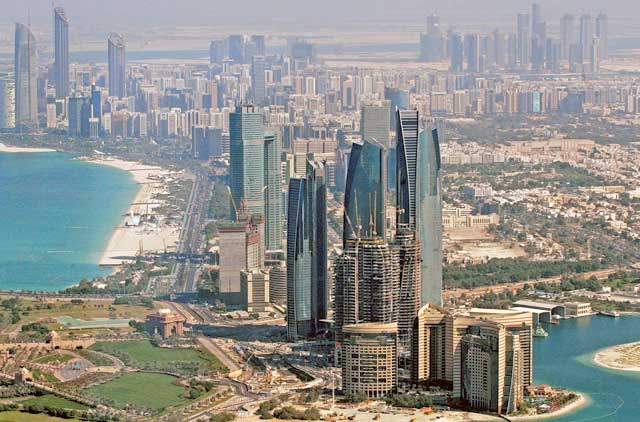Abu Dhabi: After a sharp downturn in its economy five years ago following the global economic crisis, the UAE is recovering and is well on its way to a remarkable rate of growth.
Abu Dhabi seems to be getting the better share of growth, though, as experts cited it as the fastest growing emirate in the UAE.
An official at the Department of Economic Development had forecast the growth rate in Abu Dhabi to reach up to five per cent over the next year.
“I would assume that Abu Dhabi is the fastest growing in the UAE amongst all the emirates. If you look at the growth rate in Dubai, it was projected to be maybe around 4.5 per cent…so Abu Dhabi seems to be growing at a more rapid pace,” Chief Economist at National Bank of Abu Dhabi (NBAD), Giyas Gokkent said.
Gokkent explained the growth saying that it is fuelled by the two growth engines; the oil sector, and the non-oil sector, which has been growing at 23 per cent. He also commented on other sectors saying there has been a pick-up in non-oil activity, which is likely to continue.
“You can see recovery in the real estate market. Real estate prices have risen from something like Dh800 or Dh850 per square foot on average last year to something like Dh1,200 per square foot on average in areas that are open to expats for property purchase,” he said.
Gokkent added that equity markets have also increased sharply, which indicates improved profitability of the banking system, and non-financial corporate. Other sectors that have shown robust growth include manufacturing industry; transportation; and hospitality.
Non-oil sector
As for the oil market, Gokkent said it has done better expected over the past year.
Other market analysts agreed, reporting developments particularly in the non-oil sector.
Chief Economist for Middle East & North Africa at HSBC, Simon Williams said, “We’re beginning to see infrastructure spending regain momentum. The service sector also appears to have picked up speed.”
Commenting on the global economic crisis, which gave the UAE economy a hard blow in 2008, Williams said growth had only begun to accelerate in 2012. He added that it built momentum this year, and he expected growth to continue over the next year.
“I think the outlook for 2014 is pretty good. I think all production will be flat but oil earnings will support further growth in public spending, which will be driving the economy on,” Williams said.
He warned, however, that there are certain topics that need to be addressed by decision makers in the UAE to ensure that growth persists on the long term.
“There [is] a whole host of issues that need to be addressed; fiscal policies, monetary policies, financial market, labour market, changes to the transparency and speed of the legal systems. These are issues that are very familiar to the policy makers. I’m hoping that next year will see not just discussion of those issues, but real progress as well,” Williams said.
GCC outlook
Meanwhile, a report published earlier this November by the International Monetary Fund (IMF) said the growth outlook for GCC countries in general is positive, but will be affected by global development.
“While growth has slowed from the exceptionally strong rates in 2010-11, it remains robust, and with confidence high, and large infrastructure projects coming on stream, it should remain well-supported going forward,” the report said.
It also cited oil prices as the main uncertainty in the region.
“The increase in non-conventional oil production in the United States and weak global oil demand are putting downward pressure on prices, while supply disruptions in some countries and uncertainties arising from the unrest in the Middle East are applying upward pressure,” the IMF report stated.













